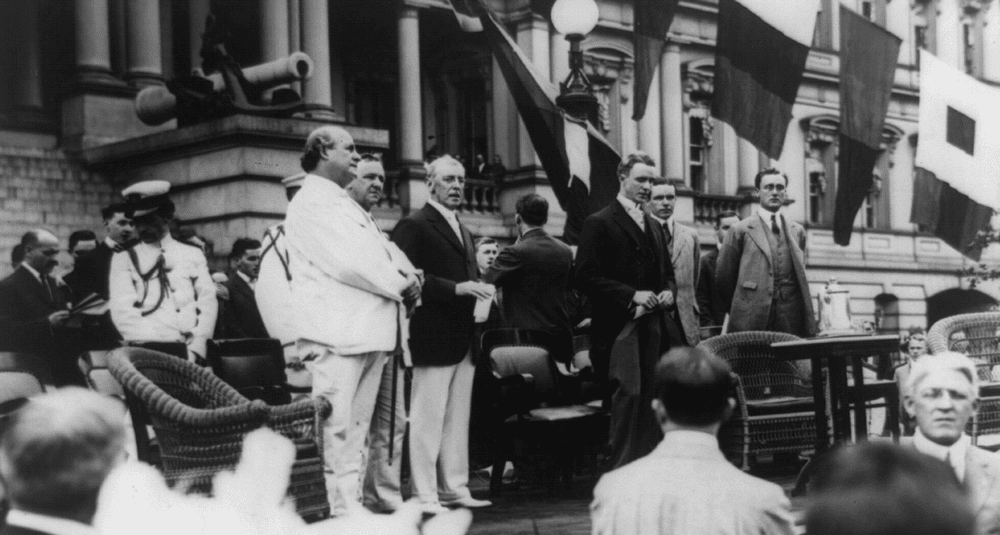What is the name of Franklin Roosevelt’s interventionist policy to fight the Great Depression in the United States?
Last Updated:
The New Deal was the set of programs and reforms introduced by President Franklin D. Roosevelt between 1933 and 1939 to counter the devastating effects of the Great Depression in the United States. This interventionist policy aimed to revive the economy, reduce mass unemployment and introduce structural reforms to prevent future crises.
The Great Depression, triggered by the stock market crash of 1929, plunged the United States into an unprecedented economic crisis. Unemployment reached 25%, thousands of banks failed and industrial production plummeted. Faced with this situation, the traditional laissez-faire approach proved ineffective, necessitating increased government intervention.
The New Deal was built around three main axes, often referred to as the “3 Rs”:
- Relief: Provide immediate assistance to the unemployed and needy;
- Recovery: Stimulate economic recovery and job creation;
- Reform: Implement reforms to stabilize the economy and avoid further depressions.
Main measures and agencies created :
- Emergency Banking Act (1933): Temporary closure of banks to restore public confidence and stabilize the banking system;
- Civilian Conservation Corps (CCC): program offering jobs to young men in environmental conservation projects;
- Agricultural Adjustment Act (AAA): Measures to increase agricultural prices by reducing production, in order to support farmers’ incomes;
- National Industrial Recovery Act (NIRA): Creation of the National Recovery Administration (NRA) to establish codes of fair competition and labor standards;
- Tennessee Valley Authority (TVA): Regional development project to modernize the Tennessee Valley through dam construction and electrification;
- Social Security Act (1935): Establishment of a social security system offering retirement pensions and unemployment benefits;
- Securities and Exchange Commission (SEC): Creation of a commission to regulate financial markets and protect investors.
The New Deal had a significant impact on American society and the economy:
- Reducing unemployment: public works programs have created millions of jobs, reducing the unemployment rate;
- Structural reforms: banking and financial reforms have restored confidence in the economic system;
- Expanding the role of the state: The federal government has become a major player in economic regulation and social protection.
However, the New Deal also came in for criticism. Some conservatives felt it was too interventionist, while progressives felt it did not go far enough. In addition, certain measures were challenged and overturned by the Supreme Court.
The New Deal represents a crucial period in American history, marking a turning point towards greater state intervention in the economy to ensure the well-being of citizens. The reforms and institutions put in place during this period have left a lasting legacy, influencing public policy for decades to come.
history

What is the name of Franklin Roosevelt's interventionist policy to fight the Great Depression in the United States?
Answer
The New Deal was the interventionist policy implemented by Franklin D. Roosevelt between 1933 and 1939 to combat the Great Depression in the United States.